Reversible Cerebral Vasoconstriction Syndrome (RCVS) is a cerebrovascular condition characterized by reversible multifocal narrowing of the cerebral arteries. Symptoms typically include thunderclap headache, which is a severe headache that usually peaks within 60 seconds.
Here is an example case of a late 40s woman on oral contraceptives who presented to the hospital with thunderclap headache and nausea.
CT Head demonstrated the following, small focus of parenchymal hemorrhage in the left parasagittal parietal lobe with surrounding vasogenic edema:
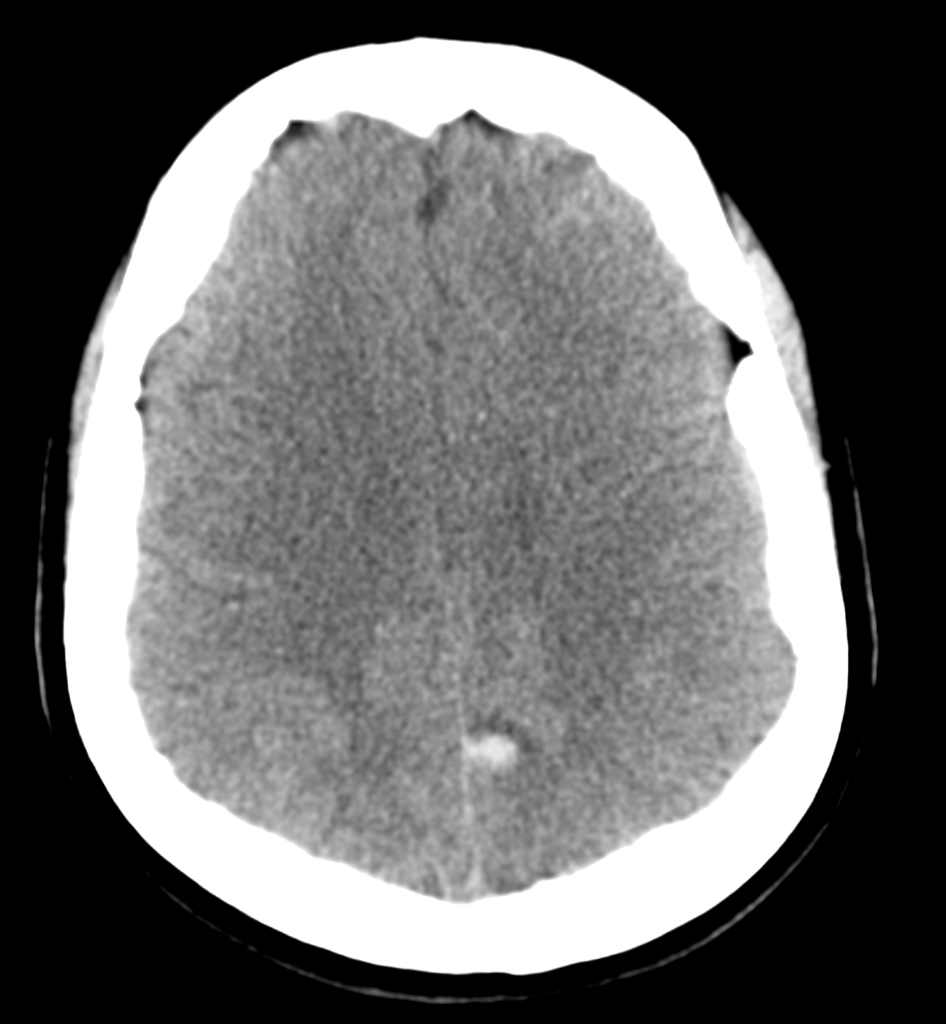
MRI Brain w/wo contrast demonstrated the following:
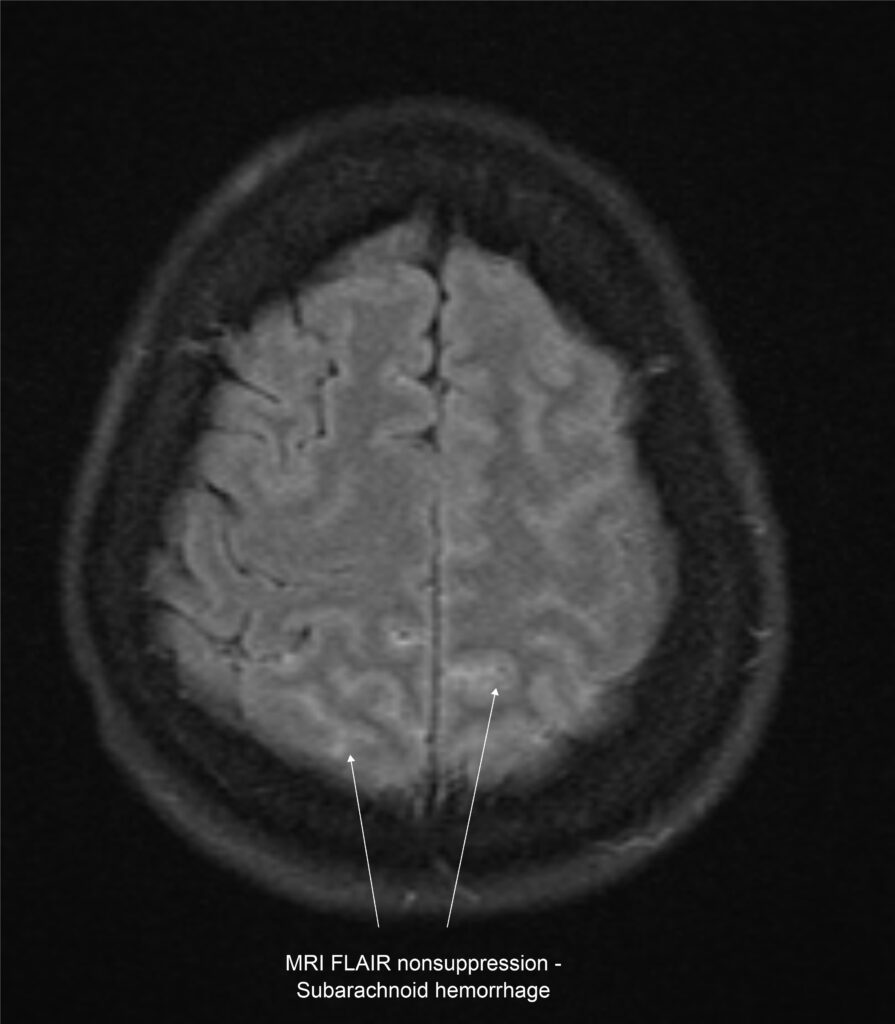
Lumbar puncture was mostly non-inflammatory.
Diagnostic cerebral angiogram was then requested which demonstrated multifocal segmental narrowing and dilation in distal vessels throughout the brain:
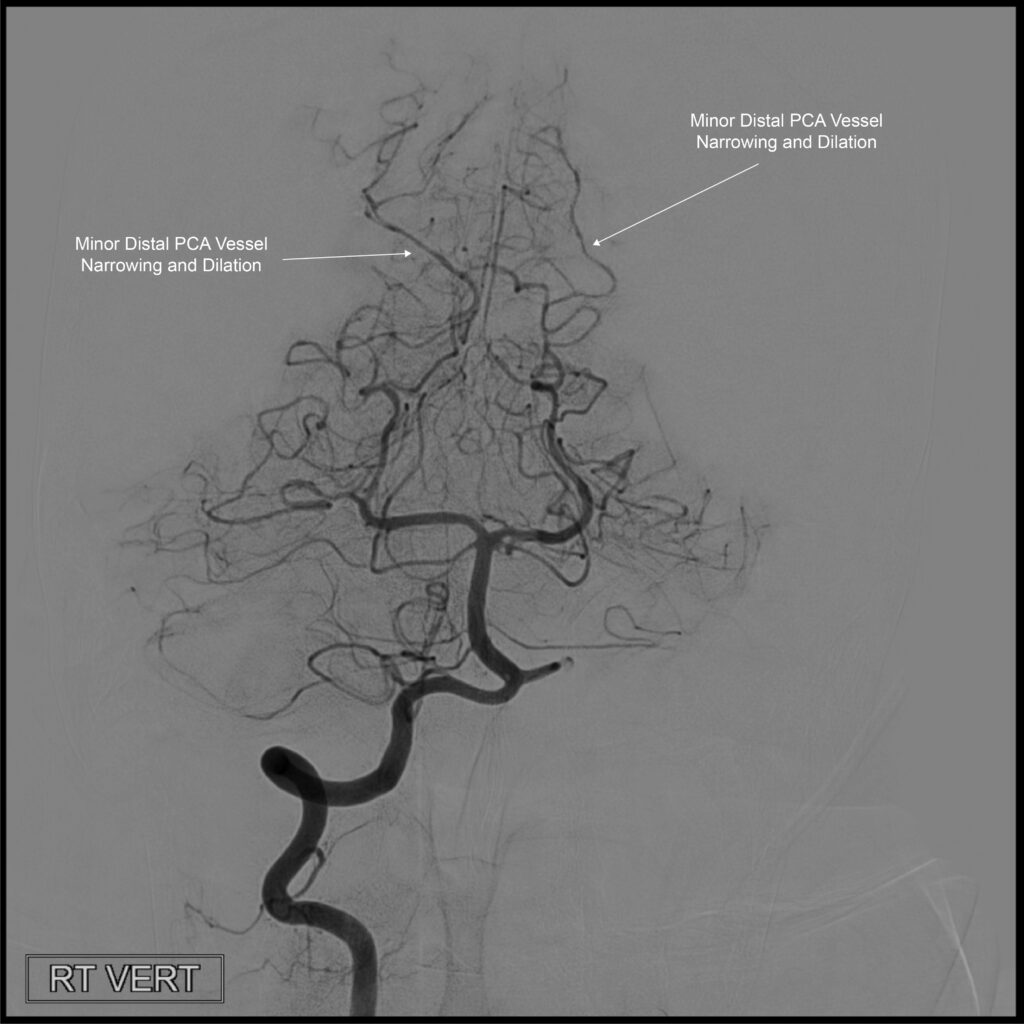
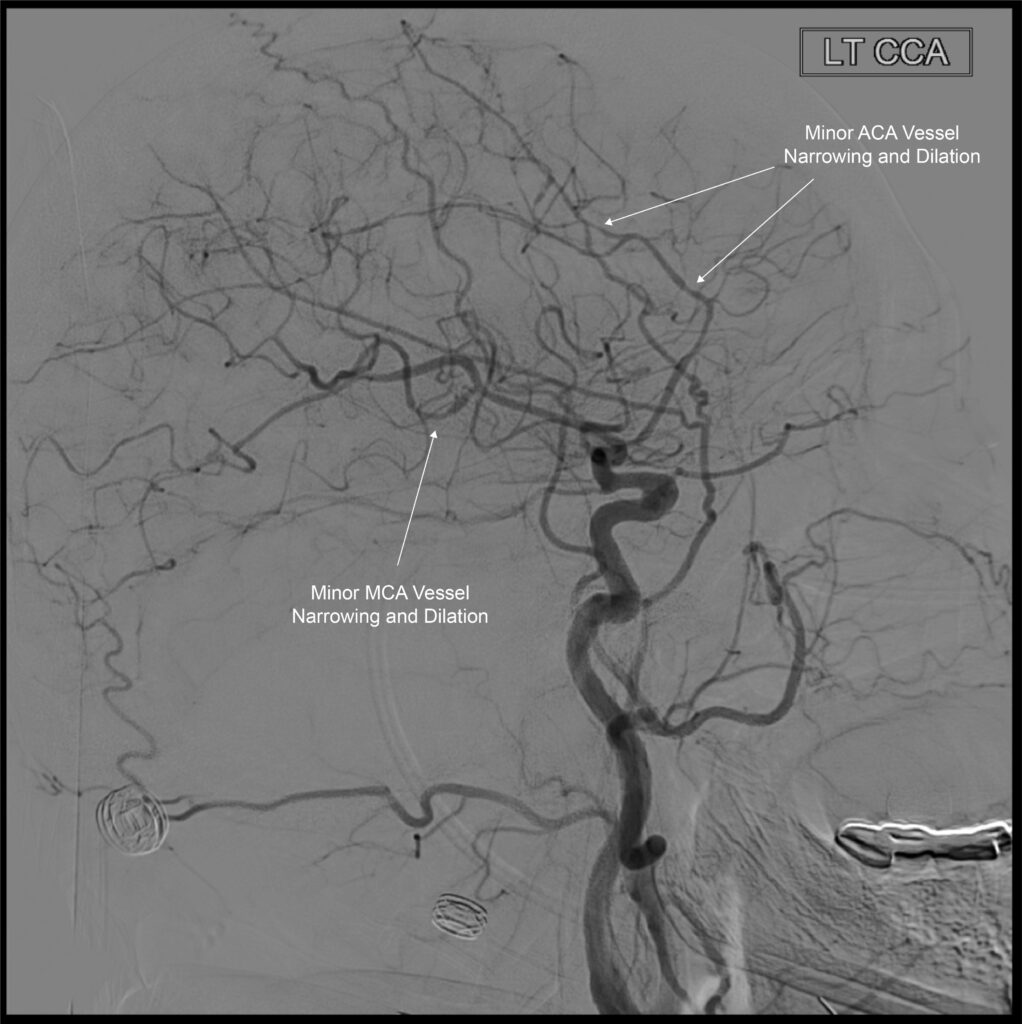
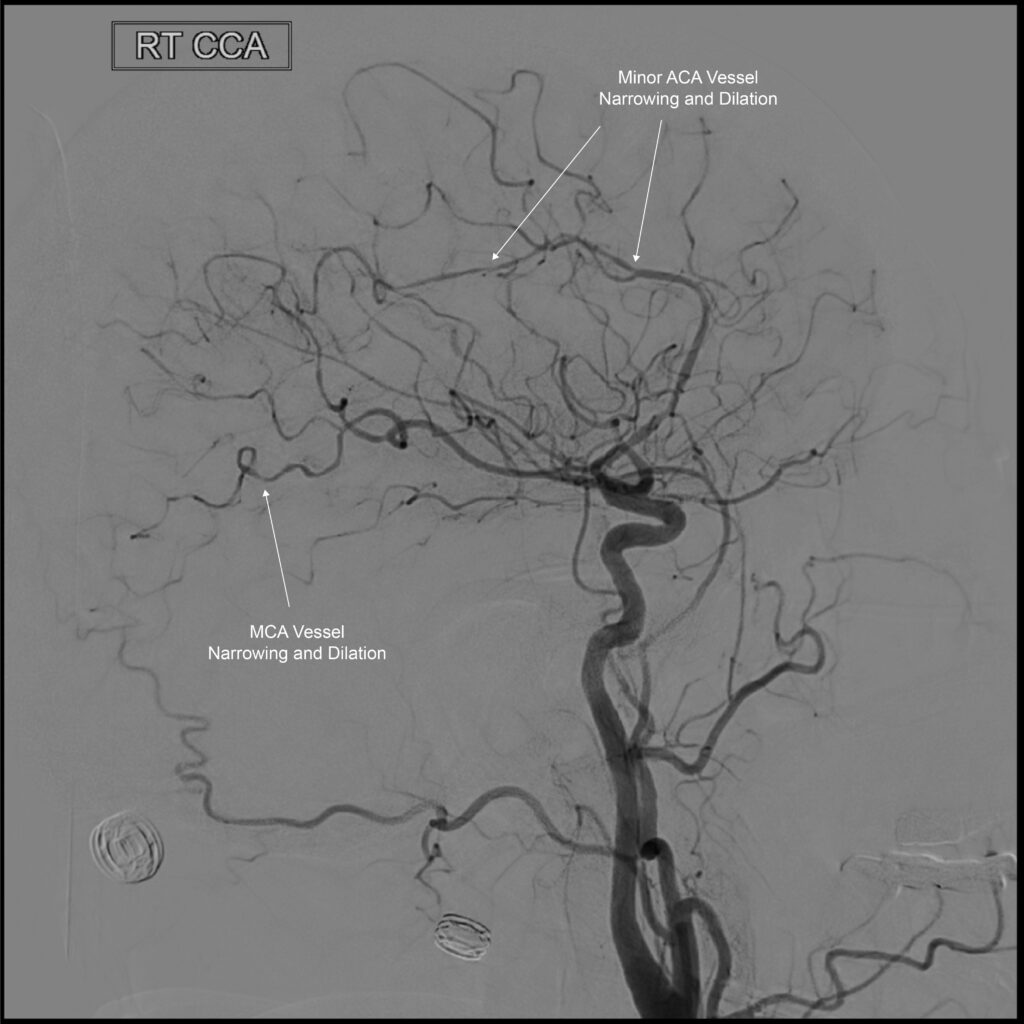
This angiogram is abnormal but could be seen in the setting of RCVS or an inflammatory process, such as CNS vasculitis. Following the angiogram, vessel wall imaging MRI was obtained which did not demonstrate any circumferential vessel wall enhancement, which would be more indicative of a vasculitic process:
Taking the data altogether, this case is fairly typical of Reversible Cerebral Vasoconstriction Syndrome. Oral contraceptives are associated with the development of RCVS.
